So, let’s get it out of the way, you’ve read the title and you know what this is about. And, more than likely, you disagree with it. Most people do. But let me clarify something right away: I am not saying Bella Swan or the story around her is good for feminism, I’m saying the success of the series is good for feminism. No role that could accurately be portrayed by Kristen Stewart has the depth necessary to be good for anyone.
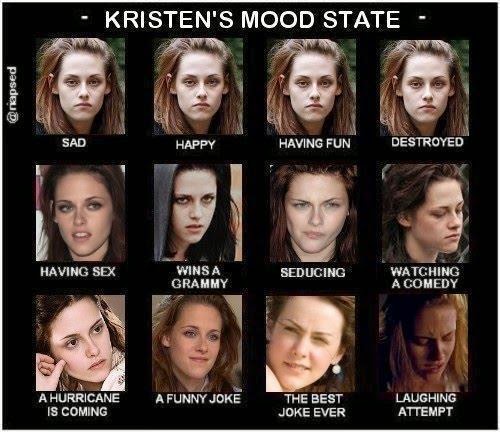 |
| Btw, it’s still not funny she’s in an adaptation of 1984. |
I know making that distinction isn’t quite enough since Twilight has been held up by some to be one of the most misogynistic things to have ever been written by a woman. This is accurate as the story is terrible and full of problematic elements. It’s the story about one of the weakest characters of all time being stalked by a man old enough to be her great, great grandfather. Over the course of the series Bella even goes so far as to try to kill herself in order to see him in her near-death hallucinations. The idea any of this could be good for feminism is enough to make just about anyone scoff – including myself from last week.
But recently Divergent came to theaters and the reviews came in. Many of those reviews were lukewarm, but one brief discussion about the film pointed out something to me that I had not thought about. Despite the fact the movie has had some rough reviews, everyone can see that it is a clear success as its opening weekend was damn impressive. And because movies like that continue to succeed, we’re going to continue to see more YA adaptations. And that’s where the revelation kicks in.
The fact is: YA adaptations are responsible for the casting of more female protagonists in big budget movies than any other trend in cinematic history. So, despite everything…
Twilight Opened The Door For Diversity
Our story began when Stephenie Meyer had sexy dreams about vampires. Having a BA in English that she’d never used, Stephenie decided to write a novel about her dream. She knew nothing about vampires, in fact, that’s why she made them sparkle since she didn’t know why they avoided the sunlight and couldn’t be bothered to look it up. And, after roughly three months, she had a manuscript. Any sane writer would have edited the thing, but not Stephenie, she submitted that bastard post haste with enough grammatical errors and typos that people to this day have entire blogs devoted to the errors and sloppy writing alone. (enjoy the link)
But our story REALLY begins with a woman named Jodi Reamer. The true nature of Jodi is up for debate. Her profile says she’s an agent and a lawyer with over 15 years of experience. I disagree: Jodi is a Sith Lord, Darth Reamer. And I believe that because the only way you could pull off what Jodi did was by force-choking the first asshole to defy your will.
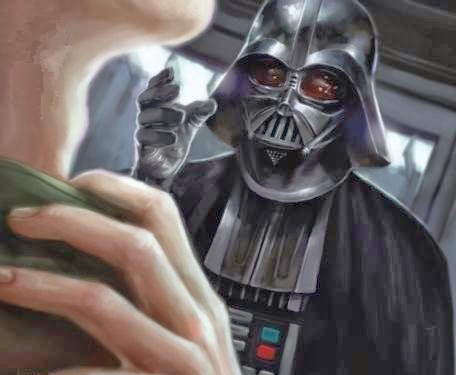 |
| “I am disturbed by your lack of faith in a three book deal.” |
Holding a shoddy manuscript written in 3 months with lackluster characters and a plot arc that consisted mostly of awkward staring at each other; Jodi strong-armed publishers into giving her client $750,000 for three books. From today’s perspective it looks like they got a good deal out of it since Twilight was a clear success. But in the time that deal was made they were essentially signing three-quarters of a million dollars for a badly written manuscript from a first time author in a genre that has traditionally had fairly soft sales.
 |
| “These books are worth $750,000” |
But Jodi wasn’t done, because she and the publisher spearheaded a media blitz which made Twilight popular before it even released. How popular? There was a movie deal being worked on before a single copy hit the shelves and Stephenie Meyer was giving interviews about how she managed to become such a success months before anyone even read her book. So anyone with any delusions that the book caught fire just because it was that damn good needs to take a lesson on how powerful a good agent can be.
In the years since that all went down, we’ve seen a surge of Young Adult fiction hitting bestseller status. And it’s not like the genre sprung forth from Meyer’s work and that all of it is just riding her coattails. If you’ve watched Vampire Diaries or True Blood you’re experiencing the adaptations of books that were written years before Meyer had her supernatural dream (and Vampire Diaries, specifically, a decade prior). Yet there they are, getting television shows and achieving greater success than they had before (Charlaine Harris personally kicked my ass in supernatural mysteries the month I released my first novel).
That paved the way for more Young Adult fiction to be published and adapted across the board. If you like The Hunger Games, Divergent or The Mortal Instruments, you have Jodi Reamer to thank for almost literally knocking down the door with the bluntest object she could find. Because before Twilight started to print money for them, the media in general didn’t realize something that daytime commercial producers have known for decades: women tend to spend more money than men for a variety of reasons. Scarface had it completely backwards, it’s not “you get the money, you get the women”, it’s “you get the women, you get the money!”
 |
| This misunderstanding may be why so many people had to meet his little friend. |
And for a lot of people out there this seems like a “duh” moment. Of course you want to sell products to half of the world’s population, that’s a no-brainer. But for the number crunchers who work in the entertainment industries it was like getting a lightning rod hammered up their ass with Mjolnir during a thunderstorm: painful, confusing, but a little stimulating.
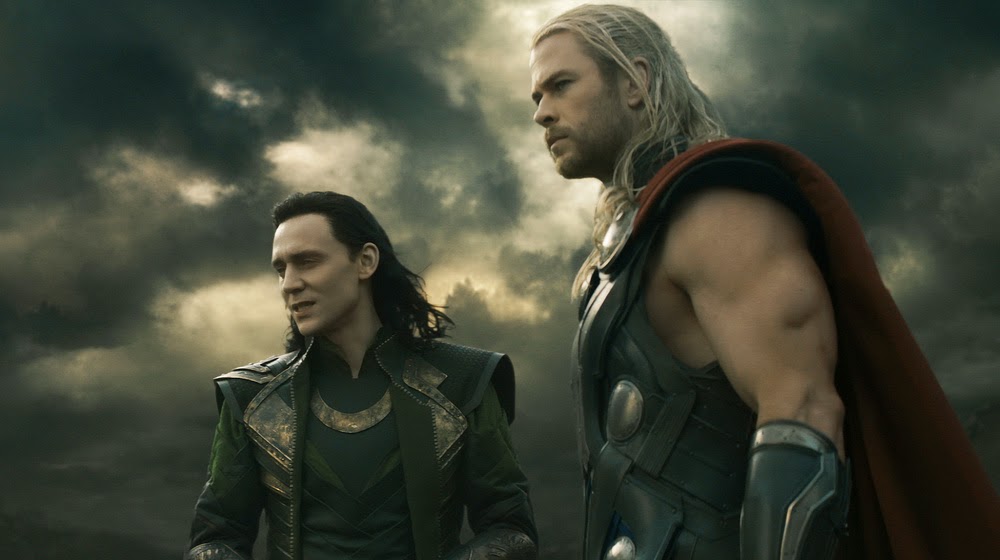 |
| That sensation also likely brought about certain casting choices. |
All of a sudden, productions were starting to be directed at women – big budget films and television shows thrown on the air with female leads. You see, the entertainment industry is fairly blind to anything except profits and they have something of a gambling addiction. They may not understand the reason this is all happening but that just means the YA genre is something of a giant slot machine for them to keep putting money into. Every time they pull the handle there’s some chance they’ll hit the next Twilight or Hunger Games. There’s going to be a lot of stinkers in between, but so long as movies with mediocre reviews like Divergent can still pay out $56 million in its opening weekend, they’ll keep putting coins in the machine.
So long as they keep paying out, the genre is going to continue to be pushed with the might of the industry behind it. That is where Jodi and her blunt object did their greatest contribution to feminism and equality. If you consider it long and hard you’ll realize that the place where you can find female leads as the protagonist, especially positive female leads, is in the YA genre. And because so much money is being put into it, these adaptations are being pushed for all audiences. In the end this means that the longer the genre continues to pay out, the more mainstream the idea of a female protagonist will become.
Because of this, Twilight is indirectly responsible for introducing the industry to the concept of interesting female protagonists. Bella sure as hell wasn’t that female protagonist, but the money she pulled in meant we could be introduced to stronger characters like Katniss Everdeen and Beatrice Prior. And, honestly, considering where the trend started…
It really can’t get worse.
(I just made myself sad by realizing that Divergent was published the same year as my first novel. Please, buy my books, they’re awesome and I’d really like a movie deal.)


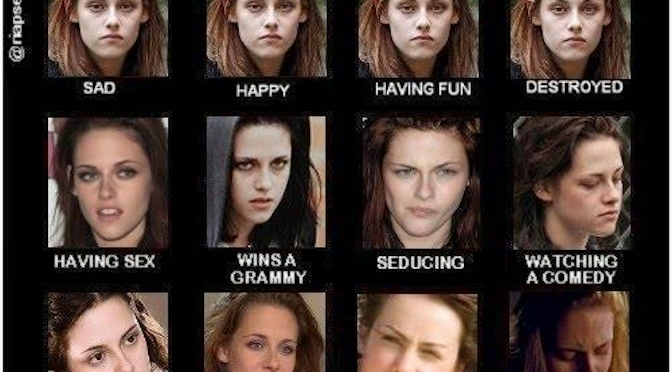
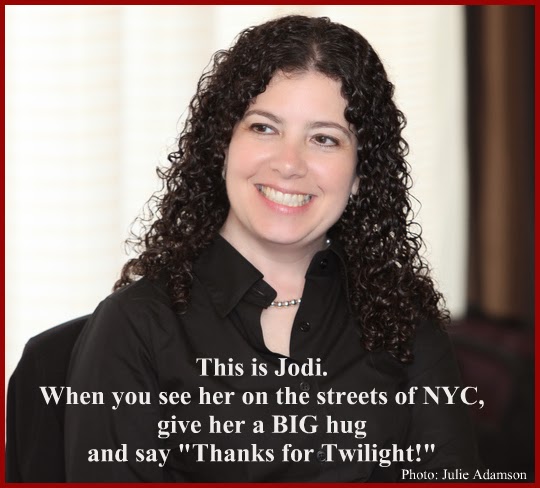





This is interesting!
And I believe that because the only way you could pull off what Jodi did was by force-choking the first asshole to defy your will.